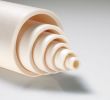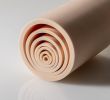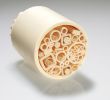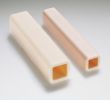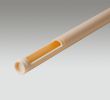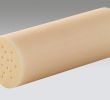Simple alumina tubes
The ceramic tubes we offer are produced from DEGUSSIT AL23 alumina (99.7% pure), as this technical ceramic offers many properties such as excellent heat resistance, good corrosion resistance and wear resistance. Our tubes are generally manufactured by extrusion or for larger diameters by isostatic pressing. They can be used at high temperatures, up to 1950 °C, which makes them ideal for utilisation in industrial furnaces or the glass industry.
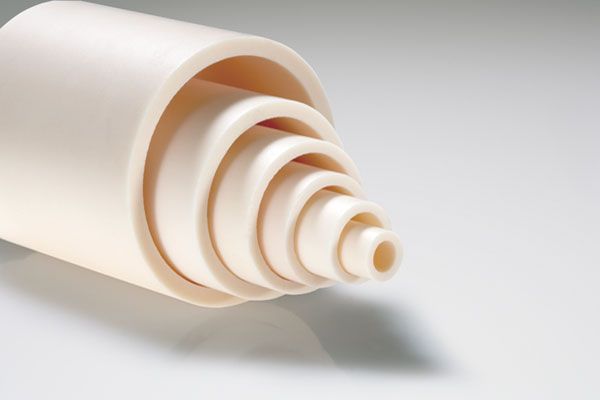
Why choose alumina for ceramic tubes?
Alumina is a technical ceramic with many properties. It is a refractory material: its melting temperature being above 2000 °C, aluminum oxide is suitable for very high temperature applications. In addition to resisting thermal shocks, this refractory ceramic has excellent dimensional stability, despite high heat. DEGUSSIT AL23 pure alumina tubes do not deform or slightly under the effect of heat, creep begins only around 1400 °C. The DEGUSSIT AL24 material has been specially developed to further resist creep at high temperatures by the use of coarse grains that reduce grain mobility and therefore deformations beyond 1400 °C. On the other hand, alumina is resistant to abrasion and corrosion. This ceramic also has excellent wear resistance which ensures a long operational life, an important point regarding the economic aspect of the product and its safety aspect. It is also a very good electrical insulator, even at high temperatures.
We chose Kyocera alumina in its DEGUSSIT AL23 form, which is 99.7% pure. This purity and the homogeneity of its microstructure reinforces its dimensional stability and allows it to withstand temperatures up to 1950 °C, compared to 1700 °C for most other sintered aluminas on the market sold under the name DIN C799 (or C710).
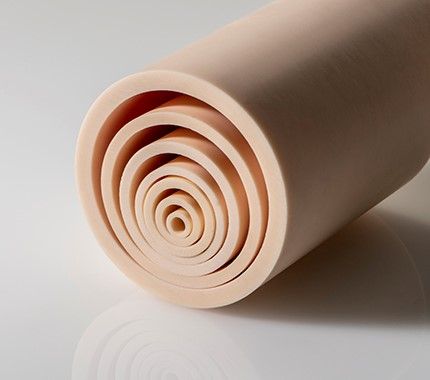
The different ceramic tubes offered
We offer different ranges of pure alumina tubes to best meet the needs of our customers. We have conventional tubes with an outside diameter ranging from 3 mm to 80 mm. At a fixed diameter, it is the length of the tube that determines its price. The maximum length a tube can have depends on its diameter. Indeed, for a diameter of less than 6 mm, the length of the tube can not exceed 1000 mm. However, for a diameter of 7 mm or more, the tube can reach 2100 mm in length.
We also offer large ceramic tubes. Their outer diameter varies between 90 mm and 170 mm, their length between 1500 mm and 1800 mm. Our standard product range also includes small insulating tubes. The diameter of these tubes can range from 0.5 mm to 2.8 mm. Their length cannot exceed 400 mm.
We also have thin-walled tubes: the thickness of their wall is barely 0.5 mm, their outer diameter can measure from 3 mm to 20 mm and the maximum length of these tubes is set at 400 mm, but we provide tubes of 100 mm, 200 mm, 300 mm or 400 mm long. We also offer tubes made for oxygen sensors (called lamba probes). These are made of yttriated zirconia DEGUSSIT FZY (zirconia partially stabilized with 5% yttrium oxide offering maximum ionic oxygen conductivity around 800 °C) and their diameter varies between 6 mm and 15 mm.
Our standard products also include a range of rectangular and square tubes. The length of the sides of the base can vary between 12 mm and 20 mm, the maximum length of these ceramic tubes is set at 2150 mm. Finally, we offer grooved tubes with diameters ranging from 21 mm to 60 mm and lengths up to 500 mm.
You can access all our standard products and especially alumina tubes: brochure of standard alumina products
Our technical ceramic tubes can be manufactured in two ways depending on their diameter. For the smallest diameters, extrusion is chosen: the alumina is shaped by plastic deformation. For longer lengths or larger diameters, cold isostatic pressing (CIP) is used to reduce the porosity of the parts.
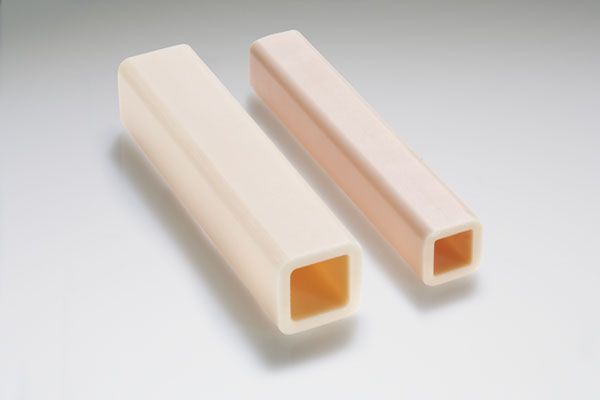
The fields in which ceramic tubes are used
The alumina tubes we offer can be used in various fields. Indeed, they are high performance products, especially as high temperature ceramic tubes. They can be utilised for example in laboratory R&D. They are often used in the glass industry as protection for thermocouples or to ventilate molten glass (since they allow air to be introduced into the molten product despite very high temperatures).
Refractory ceramic tubes are also frequently used in industrial and laboratory furnaces. It can also be used in the manufacture of tubular furnaces or for high temperature analysis (ATG, ATD) or dilatometry.





